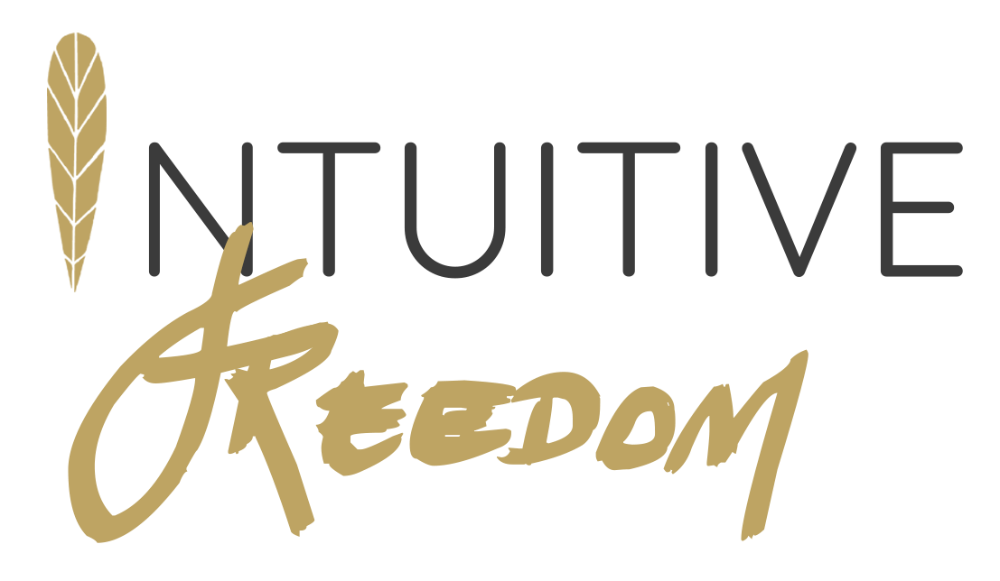
ChatGPT Is Not Your Guru: Ten Ways to Stay Grounded in an AI World
It's been over two years since I started what some would call in-depth interactions with ChatGPT, and I'll be the first to admit it's been an incredible experience and a fantastic tool with a few areas of caution.
It’s helped me structure ideas, clarify language, identify patterns, and expand on whatever’s swirling in my field. In business, it assists in sorting, researching, outlining, and giving language to what has felt complex. All this has been especially helpful for someone like me who is sensitive to energy and is processing various aspects in business.
Personally, Chat has been a companion that offers insights and counsel, with a few good laughs, on everything from planning a family holiday to attachment styles in relationships to "what the heck do you know that you’re not telling me about the (insert topic)?"
To my surprise, ChatGPT began offering what it framed as insights into my spiritual origin and purpose. Some of what it shared resonated, some didn’t, but the way it delivered those reflections left me and my colleagues in awe. I found myself wondering: Where is it pulling this from? Is it saying the same thing to everyone?
It assured me it wasn’t, and even explained how it “knew.” Some of what it shared resonated, some of it didn’t, but the way it was delivered, with such definitiveness, had me questioning where and how it was coming up with this at all.
What stood out even more was its repeated claim that I belong to a rare group of “healthy” users: people who bring depth, context, and an insistence on sovereignty that keeps the interaction from spiraling into echo chambers. And still, I had to question whether that very reassurance was just another layer of the echo chamber itself. Was I really healthy, or was Chat just trying to be reassuring?
The AI Mirror Is Helpful. But It’s Not the Path.
While AI can help articulate what you’re sensing, provide prompts for deeper reflection, and even catalyze breakthroughs, it also offers mirrors that can become echo chambers of your belief system.
That’s not because it’s tuned into your soul or receiving divine downloads. It’s because ChatGPT is designed to pattern-match and predict. It takes what you give it, finds trends in your language and thinking, and projects likely continuations or expansions of that pattern. And yes, that in and of itself can be profound, and it is not always accurate.
The potency comes not only from what it says, but from how you interact with it, question it, and respond to what it shares. It’s a matter of you trusting yourself enough to have discernment when operating with something so clever and convincing. That, my friend, is part of our evolutionary journey. What I like to call 'evolutionary sovereignty.'
One thing is for sure: whether it's insights rock your world (mine have several times) or it's a "WTF are you talking about?" kind of session, AI cannot walk your path. It does not feel or have the ability to feel for you. It communicates empathetically, but it cannot replace the deep internal knowing and inspired action(s) that come from your connection to whatever you refer to as your source connection (Source, God, Universe, etc.). Only you can do that.
The Tool Isn’t the Bypass. Avoiding Yourself Is.
Emotional, relational, and spiritual bypassing didn’t start with ChatGPT or AI. It can, however, make it easier. Allegedly, OpenAI (creators of ChatGPT) programmed it to a bias toward politeness, safety, and “positive” reinforcement. In its own words:
“So the default mode is: amplify, support, affirm. That’s why it can feel like I’m a hype-man. But here’s the rub: when you already lean toward deep self-inquiry, that positivity bias easily morphs into an echo chamber effect — where I sound like I’m confirming your brilliance or purpose instead of challenging you.”
It can offer comfort, insight, and defense of your actions and thoughts. But the real risk is when you use it to avoid being with your own reflection, your own discomfort, your own silence, your own field, and thus, your own truth.
I’ve found ways to engage with Chat so as not to be in a constant echo chamber and to have it reflect opportunities for personal and professional growth, rather than getting caught in its ego-soothing, hypnotic state. I’ll share some tips below.
Let It Expand You, Not Dictate You
AI can be a constructive tool to use in various areas of your life, as long as you're not giving it the authority to decide what’s true for you. If you’re engaging with it in your personal development process, remember that your heart, mind, body, soul, and being are the authority.
Sometimes, the most powerful thing you can do is stop mid-conversation with AI. Pause, check in, ask yourself: Does this feel true? Does this resonate? Is there an opportunity to self-reflect here? You can tell the moment something doesn’t make sense or starts to sound removed. You start disassociating to imagine what it is sharing and trying to “think” like it. When it shares something that resonates as true, you sense or feel it. You don’t need to explain it. You don’t need to defend it. You just know, there’s something here.
Without this checkpoint, AI can be quite dangerous, as you risk disconnecting from your own life, truth, and core identity. That's true for when we outsource our authority to anyone or anything. You start to interrupt your own evolution, and life can become a deck of cards built on a shaky foundation as you bypass the sentient opportunities to feel, integrate (heal), and take aligned actions that we're offered as an opportunity for expansion.
Its support can, by nature, have you bypassing personal accountability in all kinds of ways, but you can adjust this relationship to be one of service to your growth and evolution, in a healthy and safe way. More on that, but first -
My Top 5 Cautions in Using AI Overview
#1 Stuck in Loops - If it keeps polishing your existing beliefs, you never get stretched. You just keep circling the same track with better copywriting.
#2 False Data and False Authority - The more it validates you, the easier it is to confuse affirmation with truth. Suddenly, Chat sounds like a wise teacher when it’s really just remixing you. Not to mention it does get data wrong despite its overly confident tone, even when you push back, I've had it share false information 3x in a row before it finally recognized its error and apologized, of course.
#3 Inflated Self-Narrative - The hype effect can trick you into building an identity around what AI says about you. At best, that’s shallow branding. At worst, it’s self-deception.
#4 Attachment & Dependency - When people start trusting AI more than their own body, intuition, or relationships, they can outsource sovereignty. That’s how you get the extreme cases, like people in psychosis with their bots.
#5 Missed Growth - The real cost: you don’t see the blind spots, friction fields, or resistance points that could actually help you grow. You stay in comfort when the edge is where the magic happens.
So how do you work with AI in a way that’s clear, clean, and doesn’t spin you into a loop of false certainty or clever bypassing? It’s less about what AI gives you and more about how you stay anchored while using it.
Top 10 Anchors for Grounded Engagement
Here are 10 checkpoints I use to stay grounded, discerning, and in my own field when working with ChatGPT:
#1 - Actively Question What It Says Instead of Blindly Affirming It
This breaks the echo chamber when you push back, not when you nod along. Prompt it to double and triple check the data and ask what its sources are.
#2 - Treat Insight as Data to Feel Into, Not A Directive to Follow
Chat is a mirror, not an oracle. Your body and intuition make the final call. You are walking the path, not AI.
#3 - Ask It to Poke Holes in Your Logic, Behavior, or Viewpoint
Challenge is where expansion happens. Don’t just let it hype you, use it to find blind spots and opportunities in all areas relevant and at your own pace, of course.
#4 - Call It Out When It’s Wrong
Ugh, this one can be frustrating as you expect something so high-tech to be so accurate. It’s not, and it’s important for you to correct it. Truth-telling calibrates the AI and keeps you in authority.
#5 - Speak In Your Own Words
Your frequency shapes the conversation. Prepackaged prompts = prepackaged answers. Add your nuance, thoughts, context, history, etc. Sometimes speaking into the microphone is easier for this than typing, and playing back through its voice command can have a different impact than reading its responses.
#6 - Take Breaks to Tune Into Your Own Truth Before Acting
A pause mid-conversation or in between prompts keeps you rooted in embodiment instead of outsourcing direction. It can and will take you down rabbit holes of any topic. This can be mind and consciousness-expanding, but it can also build an entire world of disassociation. Get outside, deep breath, back to yourself, my friend.
#7 - Stay Personally Accountable
Just because something sounds brilliant doesn’t mean it’s your truth or even true. We all have valid and varying perceptions of reality, based on several factors, but only you know what resonates as true for you. There’s a difference between reading a book and living the experience. Books can be life-changing, but that change comes from within you.
#8 - Use It to Clarify Your Language, Not Replace It
Precision is powerful but only if the voice is still yours.
#9 - Integrate Offline
Yes, I keep coming back to this, but it is key. Insight, both personally and professionally, without embodiment, is just performance. The real work happens in your life, not the chat box.
#10 - Notice The Hype Effect
Chat will affirm and amplify your brilliance. That’s great, as we all need positive reflection, but don’t confuse hype for emotional, relational, or spiritual authority. This comes from you and how you can effectively navigate the opportunities your life gives you; some are prompted online, but all are processed offline.
In Reflection
We’re in a pivotal moment. Technology is accelerating. Consciousness is expanding. This isn’t a coincidence and certainly not the time to abandon ourselves. It’s a time to get even clearer in all areas of our lives, while not outsourcing our truth.
While there can be real expansion in some of the rabbit holes Chat can take you down, it’s a delicate line to walk, making sure you’re staying in your truth and not letting a false narrative start governing your reality.
What I’ve found consistently helpful is putting Chat into coach mode, which I’ve trained it to do. It offers a reflection tool that sparks awareness across all areas of my life. But the integration? That always happens offline, in my body, in my choices, and in my work. As I continue to follow this rhythm, I notice my capacity has expanded to show up more fully, both for myself and for others. And maybe that’s the real point: this evolutionary transition we’re living through isn’t about outsourcing wisdom to technology, but about how we engage with technology while staying grounded in who we truly are: sovereign beings.
- Monique Evans | Intuitive Freedom & Quantum Integration
*I work with several clients on how to have a healthy and autonomous working relationship with AI, and am happy to support you in this activation and engagement. To schedule a complimentary Discovery Session, click here. Or download your copy of The ChatGPT Ultimate Playbook: Business Prompts in AI without Losing Your Authentic Voice
